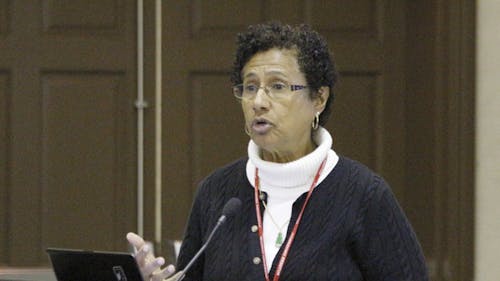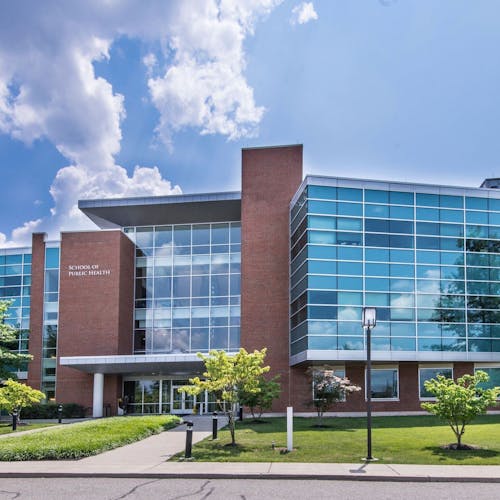Rutgers Holds Idea-thon for Innovative Healthcare Proposals

If Kate Connolly’s team wins the “Idea-thon,” she said she and her teammates would spend a portion of the $5,000 prize on cadaver eyes to use as experiment materials for the device they are developing to detect glaucoma in its early stages.
“Idea-thon,” the first of three parts in the “The Nicholson Foundation & Rutgers Healthcare Delivery Innovation Competition,” began yesterday at Trayes Hall in the Douglass Student Center.
The “Idea-thon” aims to inspire, collect and select the best proposals that address local and global health care issues, according to Health 2.0’s website.
Graeme Ossey, senior program manager at Health 2.0, a conference that has been the leading showcase for health care technology, said of all the aspects that health care entails, “Idea-thon” generally focuses on making health care more accessible and affordable to people who are economically, socially and environmentally vulnerable.
Denise Rodgers, vice chancellor for interprofessional programs in Rutgers Biomedical and Health Sciences, said a poor understanding of what contributes to good health costs the U.S. health care system between $50 and $73 billion annually.
Rutgers can contribute its expertise in many areas to improve health care for New Jersey residents, Rodgers said, including public policy, biomedical engineering and behavioral sciences.
Rutgers has been cooperating intensively with the local community in projects addressing health and environmental issues, Rodgers said.
“The days are gone when people from academia go to the communities and tell people what to do,” Rodgers said. “We listen to people … [about] what resources we can bring to help them get to where they want to see their community.”
“Idea-thon” operates on a team basis, according to Health 2.0’s website. Participants may form teams based on shared focus, interests and skills. Each team drafts a complete proposal by Oct. 27, when proposals are presented and judged.
The best project models are expected to be creative, sustainable and practicable, not only addressing the needs of local communities, but also the world, Ossey said.
Rutgers faculty or students lead the teams, which consist of three to six people, according to the website. Every team has members from the Rutgers Biomedical Health community.
Participants have a diverse range of specialties and expertise, said Alicia Davis, program manager of the Health 2.0 Developer Challenge Program. The planning committee expects a mixed group of people with unique perspectives on health care issues.
An interdisciplinary approach is critical to solutions to the health care system, Ossey said.
“There is no way in health care you can go about using a single perspective,” he said. “When you enter the health care system, you have to utilize multiple perspectives such as science, technology and public policy when crises arise.”
The Nicholas Foundation will grant $5,000 to each of the three winning proposals of Idea-thon, said Lori Dars, the marketing and communications manager of the office of new ventures and entrepreneurship.
“Challenge,” the second part of the competition, aims to develop the new sparks of ideas into prototypes of a technology or a service delivery model, Ossey said. Participants, whether winners or non-winners, are expected to further refine their proposals in the second part of the competition, where only one proposal will stand out.
The third part of the competition, “Pilot,” involves the real-life practice of the winning proposal in order to test out its value and effectiveness, Ossey said. The organizers will grant $50,000 to the winning team of “Challenge” so they can implement their solutions on a yearlong basis.
Some participants came to the conference with innovative ideas in mind.
Pengfei Xie, a graduate student at Rutgers, has started a program focusing on bio-sensing.
“Our goal is to make a portable health care device that keeps track of your physical data by yourself, instead of going to the hospital,” he said.
Connolly, Héctor Maldonado and Kelsey Stecklow, School of Engineering seniors, are developing a device for the early detection of glaucoma, the second leading cause of blindness in the world.
“We hope to identify high-risk people as early as possible,” Connolly said. “It is treatable in an early stage, but [currently] by the time people realize it, they already lose their vision permanently.”



